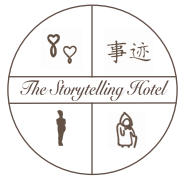Reference of «The Storytelling Hotel» in the book “Tourism and New Media», Edizioni Franco Angeli, Chapter «Tourism and Narrative Identities: The Hotel Where You Started Writing Your […]
Αναφορά του «Storytelling Hotel» στο βιβλίο “Tourism and New Media»
Αναφορά του «The Storytelling Hotel» στο βιβλίο “Tourism and New Media», Edizioni Franco Angeli, Κεφάλαιο «Tourism and Narrative Identities: The Hotel Where You Started Writing Your Story», […]
A Muse of Luxury Hospitality, Signature – “Wow” Stories
*My article A Muse of Luxury Hospitality, Signature-«Wow» Stories was originally published on Luxury Hoteliers Magazine (2nd Quarter 2017 – Page 44) and International Luxury Hotel Association https://www.luxuryhotelassociation.org/2017/07/a-muse-of-luxury-hospitality-signature-wow-stories/ . It […]
A Ritz-Carlton “wow” story
A pioneer hotel chain that adopted this experiential marketing storytelling principle early on is Ritz-Carlton hotels. Ritz-Carlton’s website section Stories That Stay With You, which comes with […]
Recognition by Joe Pine (The Experience Economy)
Distinguished by Joe Pine, co-author of The Experience Economy, as one of the most inspiring ladies in the Experience Economy (published in his personal Twitter […]
My article posted by the author of » L’expérience client»
Glad to see my article posted by the author of » L’expérience client», Laurence Body.
Οδοιπορικό στα συναισθήματα των Ελληνικών Νησιών
Φτάνει Δεκαπενταύγουστος, το αποκορύφωμα της γιορτής του καλοκαιριού. Παίρνεις το πλοίο της γραμμής από τον Πειραιά μαζί με όλα σου τα όνειρα. Οι βαλίτσες μικρές, […]
Το ξενοδοχείο σαν παραμύθι: Αιγίς Σουίτες, Κέα
Κάθε experiential ξενοδοχείο αφηγείται δύο ειδών ιστορίες, την ιστορία που ενσαρκώνει σκηνογραφικά, το πώς δηλαδή “γεννήθηκε” και ποιο ξεχωριστό concept υλοποιεί, και την προσωποποιημένη ιστορία […]
Δ. Σιμόπουλος: Ιστορίες φιλοξενίας και σύμπαντος στον ίδιο ουρανό που έβλεπε ο Δημόκριτος και ο Πρωταγόρας
1992. Ο επίτιμος διευθυντής του Ευγενιδείου Πλανηταρίου κ. Διονύσιος Σιμόπουλος θα βρεθεί σε μία κρουαζιέρα στο πλοίο Stella Solaris μαζί με ένα από τους πρώτους επτά αστροναύτες, τον Scott Carpenter, […]
Το καλοκαίρι όπως το έχεις φανταστεί
Isola d’Elba Να περπατάς μέσα σε ηλιοστάλακτα καλοκαίρια, να συναντάς έναν πιτσιρικά που τον έστειλε η νόνα του να πάρει focaccia για το μεσημεριανό τραπέζι […]
How Pomegranate Wellness Spa Hotel reduces cognitive load a la Stanford University

Seth Godin in one of his inspiring notes writes:
“The opposite of «more»
It’s not «less.»
If we care enough, the opposite of more is better.”
Reducing cognitive load is a challenge to embrace such a “less is best” theorem.
The rules, the regulations, the operating principles of the company, the non- creative parts, even the new knowledge, have to be shortened in smart, subtracting ways.
The reduction of the cognitive load exhibits good congruence with Nobelist Daniel Kahneman’s System 1 in his theory in behavioural economics. According to him the brain works in a dual system: The System 1 which is more intuitive and fast and the System 2 of the cognitive process which is governed by reasoning, analytical thinking, rationality, warranting significantly more effort.
The cornerstone of Kahneman’s theory is succinctly articulated as: “Feeling is a form of thinking. Both are ways we process information, but feeling is faster.”
The challenge when it comes to cutting the cognitive load of the rules, regulations and procedures of your company is to appeal to this first system of the human cognitive architecture.
 In the same time, in the ways Stanford University’s Hayagreeva Rao, the Atholl McBean Professor of Organizational Behavior and Human Resources at Stanford Graduate School of Business, and Bob Sutton, Professor of Management Science and Engineering and a Professor of Organizational Behavior (by courtesy) at Stanford, delineate the conundrum of cutting cognitive load, reducing cognitive load means, after all, to be able to shorten things by activating the right hemisphere of the brain where we express ourselves through feelings, art, dance, where we listen to music, where we meditate, where we dream. In other words, it’s all about narrowing down things and transform them from “loads” to inspirations in memorable ways, namely in emotions.
In the same time, in the ways Stanford University’s Hayagreeva Rao, the Atholl McBean Professor of Organizational Behavior and Human Resources at Stanford Graduate School of Business, and Bob Sutton, Professor of Management Science and Engineering and a Professor of Organizational Behavior (by courtesy) at Stanford, delineate the conundrum of cutting cognitive load, reducing cognitive load means, after all, to be able to shorten things by activating the right hemisphere of the brain where we express ourselves through feelings, art, dance, where we listen to music, where we meditate, where we dream. In other words, it’s all about narrowing down things and transform them from “loads” to inspirations in memorable ways, namely in emotions.
 Professors Bob Sutton and Hayagreeva (Huggy) Rao, IG: Stanford Graduate School of Business.
Professors Bob Sutton and Hayagreeva (Huggy) Rao, IG: Stanford Graduate School of Business.
In hospitality, this challenge of condensing lessons and rules is pivotal to the design of a storytelling hotel. The challenge is to never use a rule, even the word “rule” itself. Instead to use the word story.
The subtraction target, in other words, is to diminish the dos and rules through narrativization and emotionalization.


A great subtraction game is also what the hospitality behemoth Ritz Carlton does.

How Pomegranate Wellness Spa Hotel reduces cognitive load a la Stanford University
Instead of listing rules and guides, storify.
Namely develop impactful and emotionally resonant storytelling, harness rules in the power of stories.

Story is a brand’s currency. Whatever the kind of this brand may be. We are all inherently brands, natural storytellers. We do all carry a legacy, a storytelling heritage, a myth with us. What we need is to be great brands, great storytellers, great myths.
Our lives are pitch theatres and whatever we may do, we do story.
Cooper et al. (1994, p. viii) assert that “Storytelling is part of being human”.
In this line of thought we can cite a multitude of studies proposing that stories are an adamantine truth of our human nature. Profound poem Muriel Rukeyser portrays the remarkable pervasiveness of stories in our realm of existence: “The universe is made of stories, not atoms” (Rukeyser et al. 2005) while Gottschall (2012) inaugurates his book The Storytelling Animal: How Stories Make Us Human by quoting Ellie Wiesel: “God made Man because He loves stories”.
In the same vein, a multitude of scholars endeavor on justifying the two metaphors Homo Narrans and Homo Fictus that Fischer (1987) and Gotschall (2013) respectively nominate as the most satisfying characterization/ definition of human nature.
McAdams (1999) mirrors the same truism with Gottschall, that storytelling as a dispositional trait of human beings prevails in their lives, using alternately the similarly meaning phrase The Narrative Mind, governing that our cognition is structured on a narrative outlook.
On the emotions
Concurrently, emotionality is the ultimate competitive advantage in Hospitality. The real value of stories is the emotions that they do carry.
“Chances are, the stories that stay with you also make you cry-or laugh-or get angry. The strong emotions make them memorable.” Why Marketers Want to Make You Cry – Harvard Business Review.
Emotions work because they are very basic biological mechanisms of humans. When a hotel works properly, it employs its intangible toolbox and is linked to the emotional goals that each guest has.
According to Harvard, customers who are «emotionally connected» are the highest level of consumer. Emotional connection is what is achieved when we manage to capture the heart of the client. It is a more unconscious, rather than conscious, situation in which the customer keeps buying because he wants it, because he feels unique and because he comes closer to what he wants to be as a human.
The following is a true story of the dynamic interweaving of story and emotion which indicates how to harness the rule of providing a heart-felt hospitality into the power of a story, namely into daily action and habit.
In the hotel company that I currently work in the Guest Relations Department, in Pomegranate Wellness Spa Hotel, employees are told to place their name tag on the right side of their uniform and never on the left side where the heart is situated. The heart has to be visible without impediments in front of it. The heart has to be open.
This is not like a script. We do not tell our employees that they should stir up visceral reactions and powerful emotions to our guests; we remind them it through a daily practice. So every day when they get dressed in their uniforms and button their name tags, they do remember that hospitality is a matter of heart. So every morning they revisit their psychological duty, their responsibility to serve guests intuitively from their hearts.
This is a powerful way to elicit the knowledge, to institutionalize a rule through a habit and concurrently in a tangible way (the name tag). It is knowledge implicitly embodied in a symbolized, easily recollectable, account that cuts the cognitive load and demands less of the employees’ working memory.
 Panoramic aspect of Pomegranate Wellness Spa Hotel.
Panoramic aspect of Pomegranate Wellness Spa Hotel.

Pomegranate’s name tag on the right side of the heart is such a positive cues story that hotel employees are told and then hotel guests experience.
We talk, therefore, about smart ways to memorize rules, to own them and to perform them while using less working memory. The employees of Pomegranate Wellness Spa Hotel are not given rules, they are given tools; the tool of habit, the tool of experience.


References:
Pomegranate Wellness Spa Hotel

E: gr@pomegranatespahotel.com
T: +30 23730 43070
F: +30 23730 43119
Nea Potidea, Halkidiki
63200, Greece
www.PomegranateSpaHotel.com
Stanford Innovation and Entrepreneurship Certificate
https://scpd.stanford.edu/public/category/courseCategoryCertificateProfile.do?method=load&certificateId=14800052
650-741-1581
stanford-innovation@stanford.edu
create.stanford.edu
Stanford Center for Professional Development
496 Lomita Mall, Durand Building 3rd Floor
Stanford, CA 94305-4008
The Storytelling Hotel

Creator: Alexia Charoupa, alexiachar@gmail.com
http://storytellinghotel.com

Αφήστε μια απάντηση